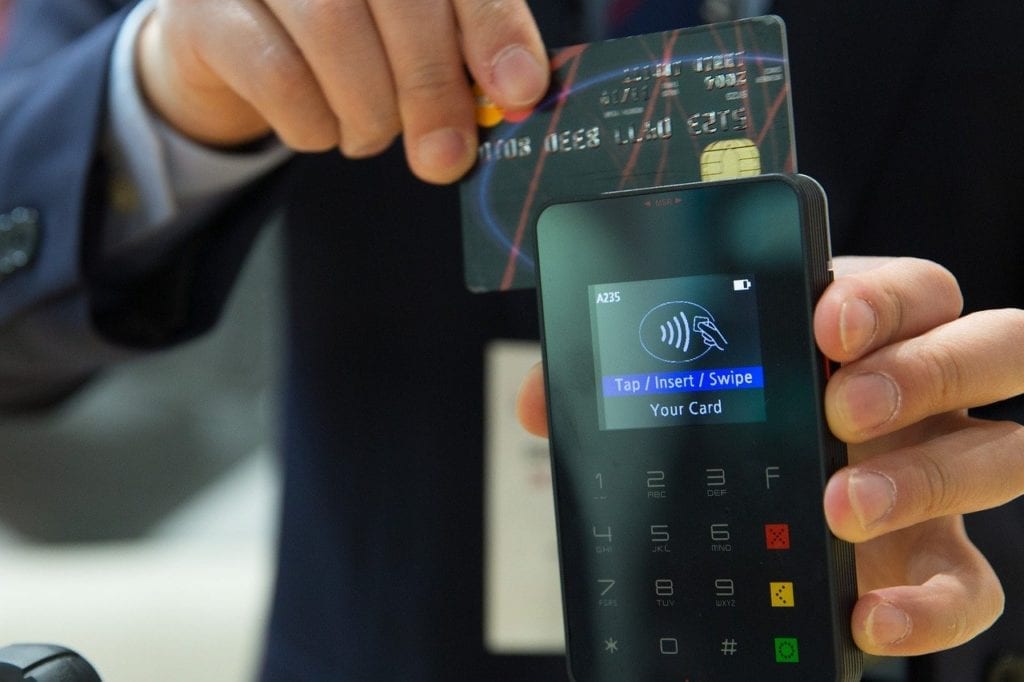While cybersecurity should always be at the forefront of users’ minds when browsing the internet, it is never more critical than during the process of making online transactions.
The reassuring logos of debit and credit card providers is normally a sign that a site can be trusted to complete transactions securely, but there are several new services challenging the dominance of these traditional online payment methods.
Consumer behaviour on the high street has changed in recent years. In 2019, The Guardian reported that one in ten adults in the UK had predominantly cashless lives, driven by the rise of contactless payments. Wales has embraced this new technology much quicker than other areas of the UK, with around 70% of people in Wales opting to use contactless in 2018.
Around half of all debit card payments in the UK are now completed via contactless, with consumers attracted to the speed and ease of the transaction. Speed and ease of use might be two reasons why card payments have risen in person, but they are also contributing factors to the rising popularity of specialised online payment methods.


PayPal
After Visa and Mastercard, PayPal has become the third most prominent name in the online payment conversation. That strength of brand recognition has contributed to PayPal’s reputation as a swift and secure payment service, whether facilitating transactions between individuals or between consumer and vendor.
From fashion brands like ASOS and Topman to department stores like Argos and Debenhams, from streaming services like Netflix and Now TV to supermarkets like Iceland and Waitrose, PayPal stands alongside traditional online payment services in a range of places.
Neteller
Many people prefer Neteller as an alternative to PayPal in some cases, drawn to Neteller’s two-step authentications and Secure IDs. This has seen Neteller embraced by the gaming community, where online payments are both common and crucial. This is particularly true of a slot machine casino online, as the success of an online slot is dependent on the ability to safely transfer funds.
Neteller has been in operation since 2000 and once accounted for 85% of online casino transactions, so it has built a reputation as a reliable and trusted payment service. Its reach extends beyond iGaming, as it services many investing and marketing platforms, but the speed and simplicity of Neteller is what allows it to thrive in an online casino environment where users might make daily transactions.
Klarna
If Neteller provides the main challenge to traditional payment methods at online gaming sites, then Klarna poses the biggest threat to established systems at e-commerce sites. Klarna’s business model is ‘buy now, pay later’, which allows consumers to tailor their payment schedule. A shopper can purchase products online, then employ Klarna to pay the merchant.
The consumer is then able to pay for those items at a later date, only accruing interest and fees if they fail to adhere to their payment schedule. Klarna therefore works in a similar fashion to a credit card, but it does so with greater personalisation and specifically in an e-commerce setting. This benefits vendors as well as buyers, as Klarna’s system discourages the shopping cart abandonment that occurred in around 70% of global online purchases last year.
Klarna in e-commerce, Neteller in gaming, and PayPal across a range of industries offer distinctive advantages to the user over traditional payment methods. Could the use of credit cards online one day seem as archaic as the completion of small chip and pin payments? With shoppers spending more money online, it is no surprise that specialist payment methods have developed in response to changing consumer behaviour.









Leave a Reply
View Comments